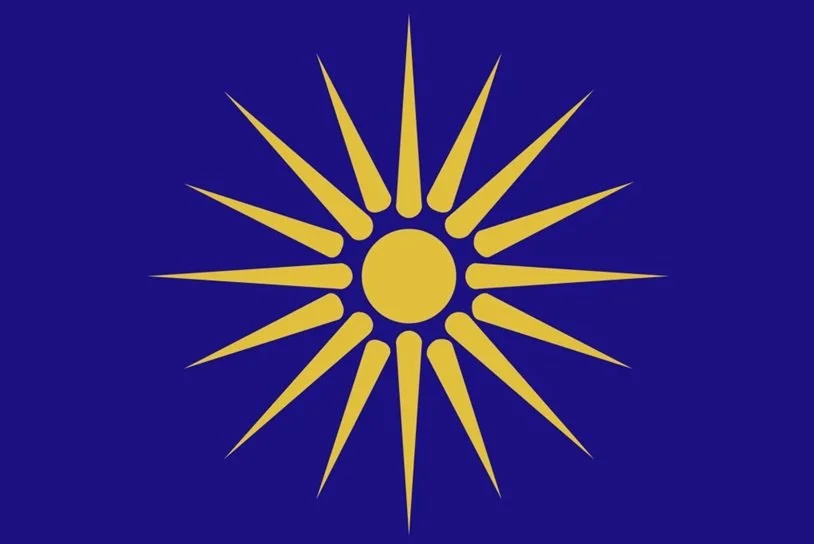The recent dismantling of the alleged far-right organization “Nationalist Youth of Thessaloniki,” also known as “Defend Salonica,” by the Greek Police on May 7, 2025, has sparked heated debate. Authorities hailed the operation as a triumph against criminality, accusing the group of a range of offenses, from vandalism and robberies to racist attacks. However, a closer examination of the facts and findings suggests this case may be a politically motivated persecution, aimed at intimidating Greeks embracing patriotic ideals, orchestrated by the ruling New Democracy party.
A photo of the nationalist youth who attempted to protect schools of underage children that came under the terror of leftist organizations.
The Charges: Exaggerations and Deliberate Misrepresentation
The Greek Police claim the organization has been active since 2019, engaging in violent assaults, robberies, and vandalism with racist motives. Yet, the charges appear disproportionate to the evidence. The so-called “vandalism” largely involves affixing nationalist symbols and slogans—acts that, while illegal, do not necessarily constitute an organized crime syndicate. The two reported robberies are described as small-scale incidents involving the theft of items like mobile phones and a shirt, while a clash in Oreokastro appears to have been driven by football hooliganism rather than clear racist intent.
The charge of “human trafficking” through the recruitment of minors is particularly contentious. The participation of minors in groups with patriotic ideologies does not inherently equate to criminal activity; rather, it reflects a growing appeal among youth toward ideas championing national identity. Portraying these teenagers as “recruited” seems like an attempt to demonize a generation seeking ideological direction.
The Findings: Patriotic Symbols, Not Criminal Arsenal
The items seized during home searches further support the notion of political targeting. Among the confiscated items were Christian calendars, symbols like the Vergina Sun, and materials with patriotic content. These items, which express national and religious identity, were labeled by authorities as “far-right” or “racist” without evidence linking them to criminal acts. The Vergina Sun, an ancient Greek symbol, is deeply rooted in Greek history and widely used by patriotic groups, without implying extremism.
Moreover, the “weapons” seized included items like knives, bats, and brass knuckles, which, while illegal in some contexts, are not uncommon in households or among groups with sports or fan-related affiliations. The presence of fireworks and small amounts of narcotics does not appear tied to organized crime but rather to typical youthful behavior. The absence of serious weaponry or explosives undermines claims that the group posed a threat to public safety.
The Political Angle: New Democracy and the Patriotic Shift
The crackdown comes at a time when Greek society is experiencing a patriotic awakening, with many citizens, especially youth, turning toward ideologies that defend national identity and traditional values. This trend appears to unsettle New Democracy, which, despite its “patriotic” image, pursues policies aligned with globalization and European integration. The prosecution of the “Nationalist Youth” can be seen as an attempt to suppress this movement, deterring the radicalization of the patriotic sphere.
The case’s exaggerated media coverage, largely driven by outlets aligned with the government, reinforces the perception that the operation was as much about optics as enforcement. The focus on minor suspects and the portrayal of everyday items as “evidence” suggests an intent to intimidate citizens expressing patriotic views. Rather than addressing social discontent through dialogue, New Democracy appears to be criminalizing ideological dissent, branding any patriotic expression as “far-right” or “racist.”
Conclusion: Defending Freedom of Expression
The “Nationalist Youth of Thessaloniki” case does not appear to involve a dangerous criminal organization but rather a group of young people expressing, albeit imperfectly, their love for Greece and commitment to traditional values. Possessing Christian calendars and symbols like the Vergina Sun is not evidence of extremism but an expression of cultural and national identity. Instead of addressing the root causes driving youth to such groups, New Democracy opts for persecution and vilification, signaling that any patriotic voice will be silenced.
Greek society must defend the right to free expression and demand transparency regarding the methods used in such crackdowns. The patriotic shift is not a crime but a natural response to an era of uncertainty. Rather than intimidating, the government should listen and engage with these voices to build a more united and proud Greece.












